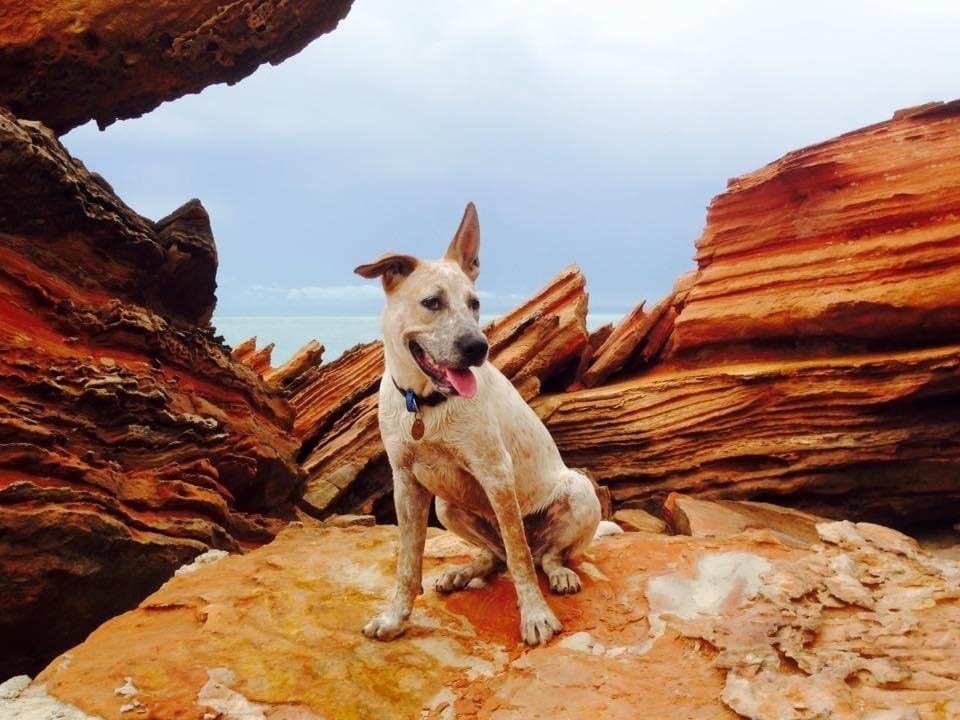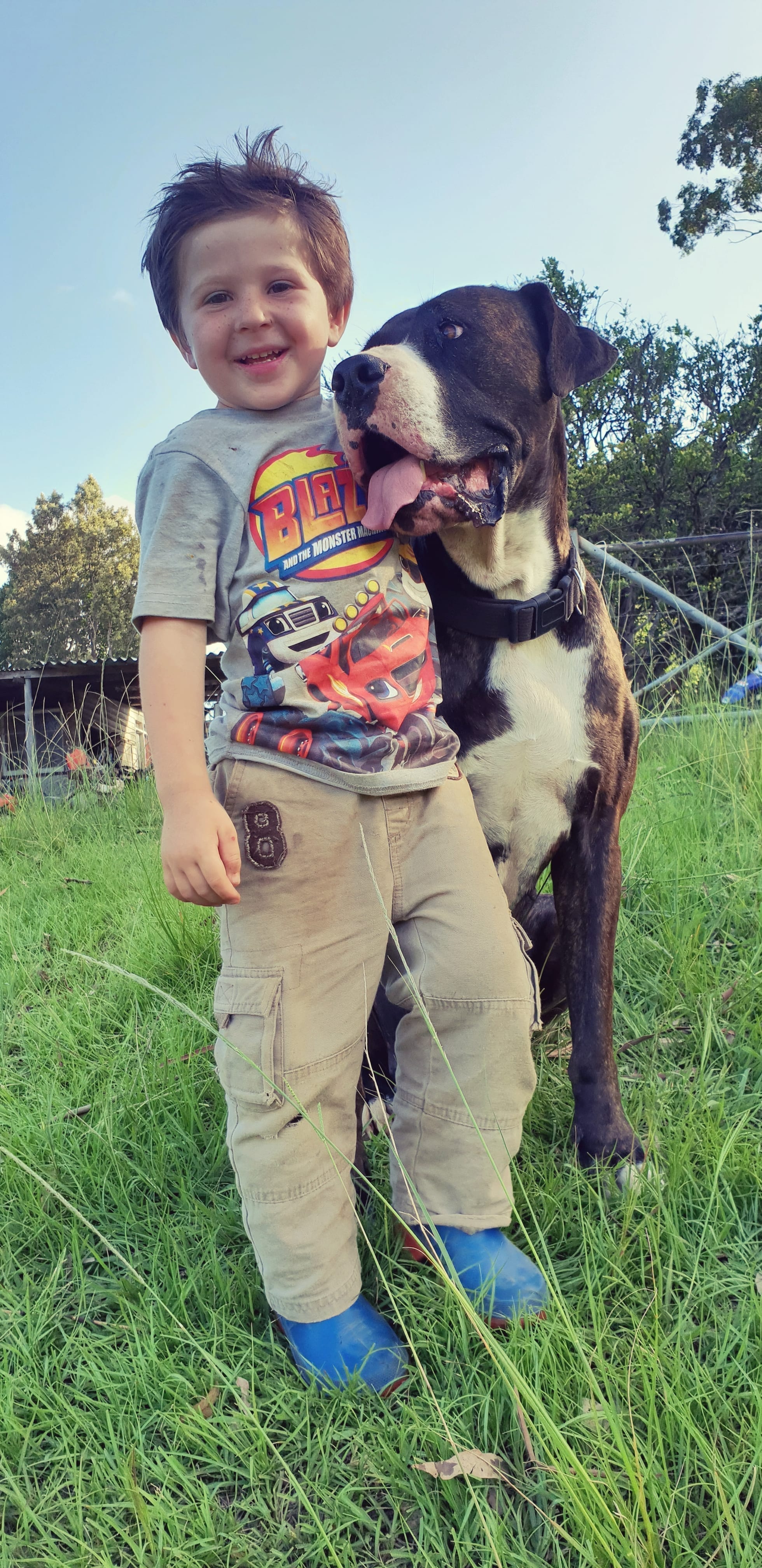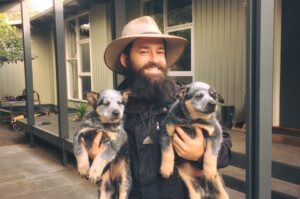We’ve all seen the news since COVID became a thing that pet adoption rates have soared. Some shelters reportedly had no dogs left to adopt – for the first time ever.
But of course adopting rescue dogs is not so straight forward. They are often adult dogs with an existing name. Many have sadly been abused or neglected. Mistreatment can in turn result in behavioural issues and/or special medical needs. They also can take time to regain trust in humans.
So it’s not enough to simply want a dog – you have to be fully prepared to meet their special needs for life.
Rescue dogs need your patience – and LOTS of it
As a kid, my family adopted a Staffy cross Whippet through our local vet. Tia was 9 months old at the time and, as we quickly discovered, had been abused.
Poor Tia would bolt far away at any sudden movement or noise – like a sneeze or reaching for an itch. She cowered at the sight of a brush, belt or lead. And Tia had likely been used as an ashtray, given her reaction to smokers and cigarettes.
Thankfully we had another dog at the time – a Newfoundland named Bindi. It gave us a way to show Tia that her fears were unfounded in her new home.
We made sure that Tia could see us brushing our other dog. We walked Bindi on the lead in the backyard in front of Tia. And we shook out the washing with Bindi at our feet.
In time, Tia was able to see for herself that these actions were harmless for our other dog. It helped her overcome her fears. Then we were able to gradually introduce her to them directly.
It took a lot of time and a great deal of patience, but Tia went on to live to age 14 and was the most beautiful, loyal friend we could have ever wished for.
Tailor rescue dogs training to suit their needs

Aarli is an Australian Cattle dog cross Johnson’s Bulldog, who happens to deaf. The now five-year old was adopted at just 7 weeks of age by Siobhan.
“She was advertised in our local animal rescue site called SAFE. Someone bought her … discovered she was born deaf, didn’t want her and so surrendered her to SAFE,” Siobhan tells Paws N’ All.
“The SAFE volunteer said she’d never seen a pup that was as smart as Aarli, even though she’s deaf.”
According to Siobhan, raising Aarli hasn’t been very different from any other puppy. They relied heavily on food, but substituted voice commands for hand signals.
The most important thing to do with your puppy, disabled or otherwise, is socialise, socialise, socialise, if possible. “Especially with a disabled dog. Your dog needs to react appropriately if she’s deaf and someone grabs her unaware.
Take your dog everywhere, introduce to everyone. For a deaf dog, get it used to people grabbing it or patting it. Teach it that when you wake it or sneak up on it, they get a reward – that way it’s a good experience, not a frightening one.”
Aarli’s owner, Siobhan
The right training from the outset can make life with rescue dogs virtually the same as any other pet, adds Siobhan. And a deaf dog even has some perks.
“We can take Aarli to a firework’s show, markets, and she sleeps through cyclones & storm”
Her advice for adopting a rescue dog is simple: “Go for it!”
“Teach your dog their boundaries, how to seek you out, your home and your car,” says Siobhan.
“Aarli has given us so much joy. She’s a very funny character who makes us laugh a lot, she’s independent, very smart and a total boofhead!”
Match the breed to your lifestyle

Other dogs are adopted much later in life, having been abandoned or rescued from poor living conditions.
Such was the case for our dog name competition winner, Mumma. The Great Dane cross was rescued from a puppy farm and was estimated by vets to be around 8 years old. It’s believed she had given birth to more than 100 puppies.
Now, Mumma spends her days frolicking about a farm and accompanying her humans to work each Friday.
Her owner Hannah says it has been really rewarding to adopt an older dog and shower her with the attention and affection absent in her younger years.
“Rescue dogs are amazing! Especially senior ones like Mumma,” she says.
Hannah says it’s important that any new dog you bring home – whether a rescue dog or new puppy – is appropriate for you and your family.
If you are after a specific breed, do your research – make sure it suits your lifestyle.
That will minimise the chances of you being forced to give up your dog down the track.
And find a reputable, registered breeder!
Mumma’s owner, Hannah
RSPCA’s top tips for adopting a rescue dog
As an adoption and rescue agency, the RSPCA has been adopted many pets into new homes. So it knows from experience about what it takes to ensure each dog is adopted by the right family.
It has this advice for would-be adopters:
- Don’t rush into it: “Take your time to think about what type of dog you are after and what type of dog is right for you and your family”.
- Be prepared: Understand your dog’s feeding, exercise, training and medical needs and be set up to meet those needs as soon as they come home.
- Know the breed: Each breed is prone to particular health problems – from skin, ears and eyes to hips, spine and skin. It’s important to know what they are and how to look after them from the outset.
- Budget: Owning a dog is a big financial commitment, so be sure you can afford their ongoing needs. That includes meals, toys and treats, bedding, grooming, parasite treatments, accessories (like leashes and poop bags) and vet costs.
- Adapt your home: Bringing home a new dog, especially a rescue dog that may be wary of you initially, requires a safe and secure home and yard. Also consider any other pets you have and how the new dog may get on with them.
- Dedicate your time: A rescue dog will need a lot of your time. Make sure you’re not too busy to give them the attention they need to settle into their new life.
More advice on adopting a dog or puppy is available on the RSPCA’s website.










